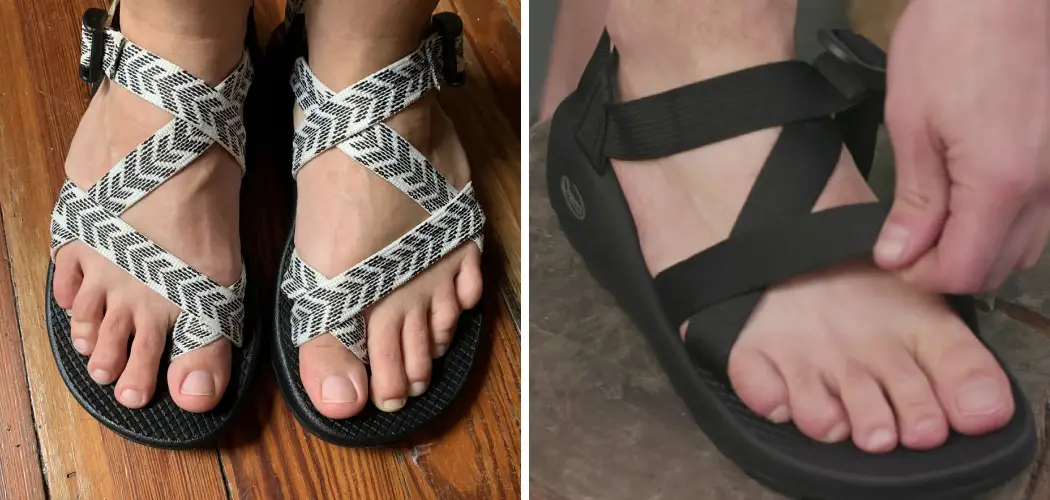Are your feet aching after wearing your favorite pair of chacos? You’re not alone – many people find their chacos digging into their feet during extended use. But don’t worry, this doesn’t have to be the case – there are several steps you can take to make sure that you don’t have to sacrifice comfort for fashion!
In this blog post, we will explore the best methods of how to make chacos not hurt and discuss why these changes might make all the difference in terms of comfort. So if you want to keep wearing those stylish chacos without suffering from foot pain afterward, read on!
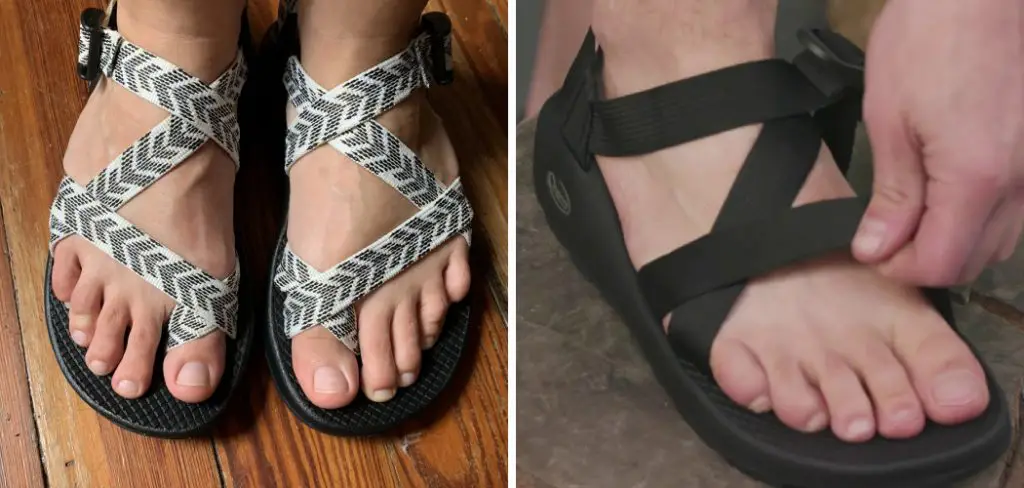
In this blog post, we’ll cover tips and tricks to prevent your feet from hurting when walking or hiking with chaco sandals. We’ll explain ways to reduce friction during prolonged use and provide resources so that you enjoy wearing your shoes without fear of injury.
Summary: To make Chacos not hurt, it’s important to break them in gradually. Start by wearing them for short periods of time around the house or on short walks. Use moleskin or band-aids on any areas that are rubbing or causing blisters. Tie the straps tight enough to provide support, but not so tight that they cut off circulation. With patience and persistence, you can enjoy all-day comfort in your Chacos.
15 Ideas On How to Make Chacos Not Hurt
1. Purchase the Right Size
One of the most important things you can do to make Chacos not hurt is to purchase the right size. Chacos come in sizes 5-15, with half sizes available. Make sure you measure your feet carefully before buying a pair of Chacos!
2. Break In Your Shoes
Though they may feel comfortable out of the box, Chacos will feel even more comfortable after being broken in. Wear your shoes around the house for a few days before taking them out for extended walks or hikes.
3. Tighten Your Shoes Appropriately
It is important to make sure you don’t over-tighten or under-tighten your Chacos. Over-tightening may cause pinching or pain while under-tightening your Chacos will mean they won’t provide you with the necessary support.
4. Wear Thick Socks
Wearing thick socks can help provide cushioning and reduce the chances of blisters forming on your feet. However, make sure you don’t wear too thick socks, as this may cause your feet to overheat.
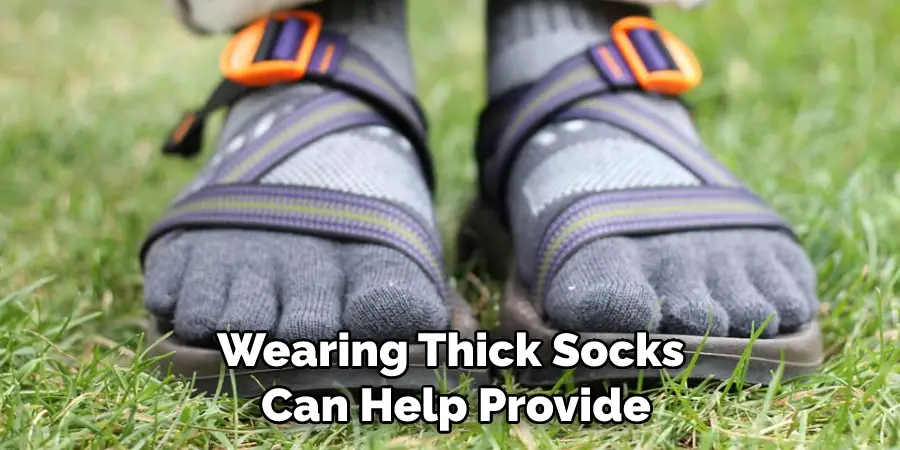
5. Consider Adding Insoles
Adding insoles can help with arch support and provide cushioning for your feet. If you find that the footbed of your Chacos is too hard for you, adding an insole can make a big difference in how comfortable they are.
6. Select an Appropriately Cushioned Sole
Chacos come with three levels of cushioning, so it is important to select the one that is right for you. A softer sole will provide more cushioning, which can help reduce discomfort when wearing your Chacos for longer periods.
7. Make Sure Your Toes Aren’t Squished
Chacos should fit snugly, but you don’t want them to be so tight that your toes are squished or uncomfortable. If your toes feel cramped or crushed when wearing Chacos, try going up a half size.
8. Wear Your Chacos for Short Periods at First
If you’re new to Chacos, it is important to break them in slowly. Wear your shoes around the house for short periods of time and gradually increase the amount of time you spend in them as they start to feel more comfortable.
9. Lace Your Chacos Up Differently
You may find that lacing up your Chacos differently helps reduce pain or discomfort. Try different lacing patterns to see if one works better for you.
10. Wear Them Only for Short Walks or Hikes
Chacos are great for short walks or hikes, but if you’re going for a long hike, it may be best to wear shoes with more cushioning. So if you’re feeling uncomfortable in your Chacos, consider switching to a different pair of shoes.
11. Try Alternate Footwear
If you find that your Chacos are too painful to wear for any length of time, it may be a good idea to try alternate footwear, such as hiking boots or sandals with more cushioning.
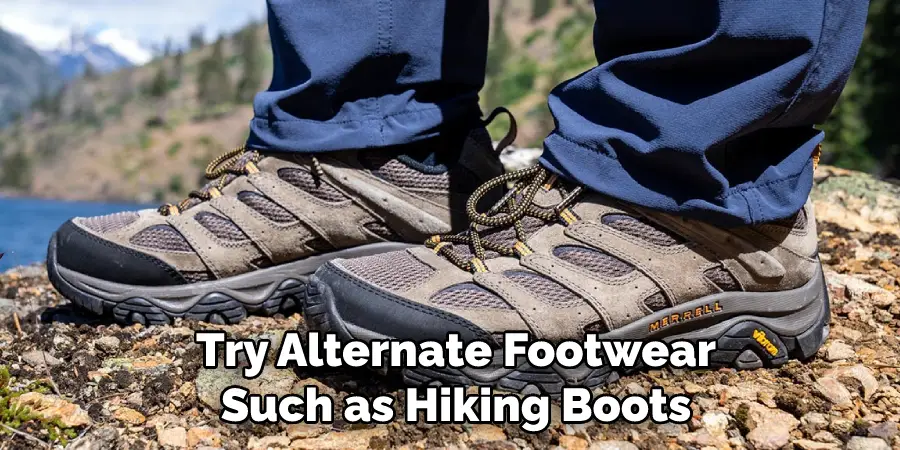
12. Support Your Feet with Orthotics
Orthotics are special insoles that can provide support and cushioning for your feet, which may help make Chacos more comfortable to wear. If you suffer from foot problems such as plantar fasciitis, orthotics may be a good option to consider.
13. Apply Moleskin
If you are prone to blisters or hotspots, applying moleskin to the affected area can help reduce friction and make your shoes more comfortable. Make sure to apply the moleskin after putting on your socks and before lacing up your shoes.
14. Don’t Overlook the Need for a New Pair of Chacos
If you’ve been wearing your Chacos for an extended period of time and are still feeling discomfort, it may be time to purchase a new pair. Over time Chacos can become worn down and lose their cushioning and support, so don’t overlook the need for a new pair of shoes.
By following these simple tips you will be able to make your Chacos not hurt and enjoy all the benefits that this great footwear offers. So don’t let discomfort keep you from enjoying your Chacos, follow these steps and start feeling comfortable again!
Frequently Asked Questions
What Precautions Should I Take To Avoid Chaco Blisters?
The best way to avoid blisters when wearing Chacos is to make sure that the sandals fit properly. If the sandals are too loose or too tight, it can cause friction on your feet and lead to blisters. You should also wear socks with your Chacos for extra protection.
Additionally, you can use foot powder or lotion to reduce the amount of sweat and friction on your feet. Finally, it is important to regularly check your sandals for signs of wear and tear that could increase the risk of blistering.
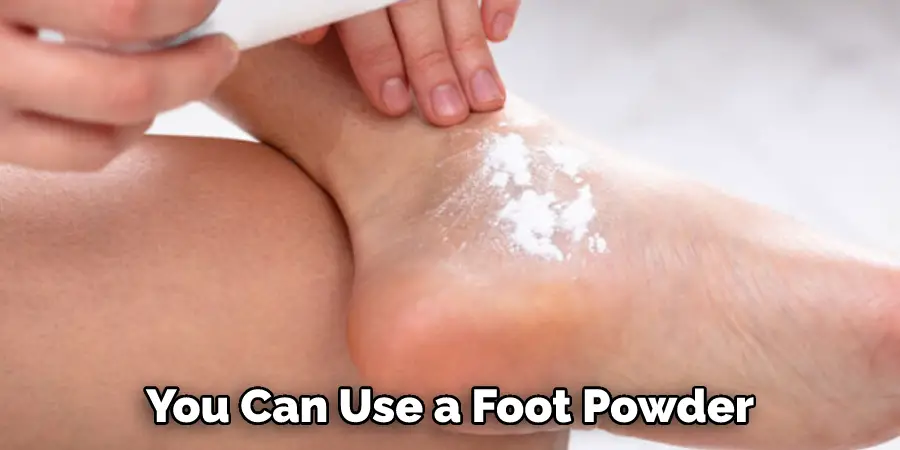
What Are Some Tips For Breaking In Chacos?
To break in your Chacos, it is usually best to wear them in short increments at first. This will give your feet time to adjust and reduce the risk of blisters or another discomfort. Additionally, you should consider using a conditioning spray designed for sandals to soften the straps and make them more comfortable. Finally, it may also be helpful to add custom insoles to your Chacos for extra cushioning.
What Should I Do If My Chacos Still Hurt?
If your Chacos still cause discomfort after taking the necessary precautions, you may need to adjust the straps or buy a different size. It is also possible that the sandals simply need more time to be broken in properly. If the problem persists, you should consider replacing your Chacos or seeking advice from a podiatrist.
When Should I Replace My Chacos?
It is usually recommended to replace your Chacos after one year of use. This will help ensure that the sandals remain comfortable and supportive as time passes. Additionally, it is important to regularly inspect your Chacos for signs of deterioration or wear and tear that could lead to discomfort. If you notice any of these issues, then it is probably time to replace your sandals. Also, if your Chacos feel too loose or tight, it is best to buy a different size for better comfort.
Can I Wear Chacos In The Water?
Yes, you can wear Chacos in the water. However, it is important to remember that the water may weaken the sandals. Therefore, it is best to wear them only in shallow areas and avoid submerging them completely in water.
Additionally, be sure to dry your Chacos completely after getting out of the water and treat them with a conditioning spray if needed. This will help keep your sandals looking great and lasting longer. Also, consider wearing socks with your Chacos when swimming to help protect your feet from blisters.

Conclusion
Now you know how to make chacos not hurt and how to take proper care of them. By following these simple tips and taking the necessary precautions, you will be able to enjoy your Chacos in comfort and style. Don’t let discomfort hold you back from enjoying the great benefits that Chaco sandals offer!
To recap, chacos can be a great shoe choice for any season with the right care and adjustment. First, remember to break in your chacos correctly so that they are not too tight. Secondly, make sure to apply mink oil to maintain the shoe’s integrity while providing flexibility. Thirdly, adjustable straps will allow you to customize the fit of your chacos to provide maximum comfort.
Finally, if necessary, investing in arch support inserts can help reduce pain and support your feet. All these tips added together should ensure that you have a long-lasting pair of chacos that does not hurt or leave you with foot fatigue. By following this guide consistently, you are sure to love your next pair of chacos for years to come!

